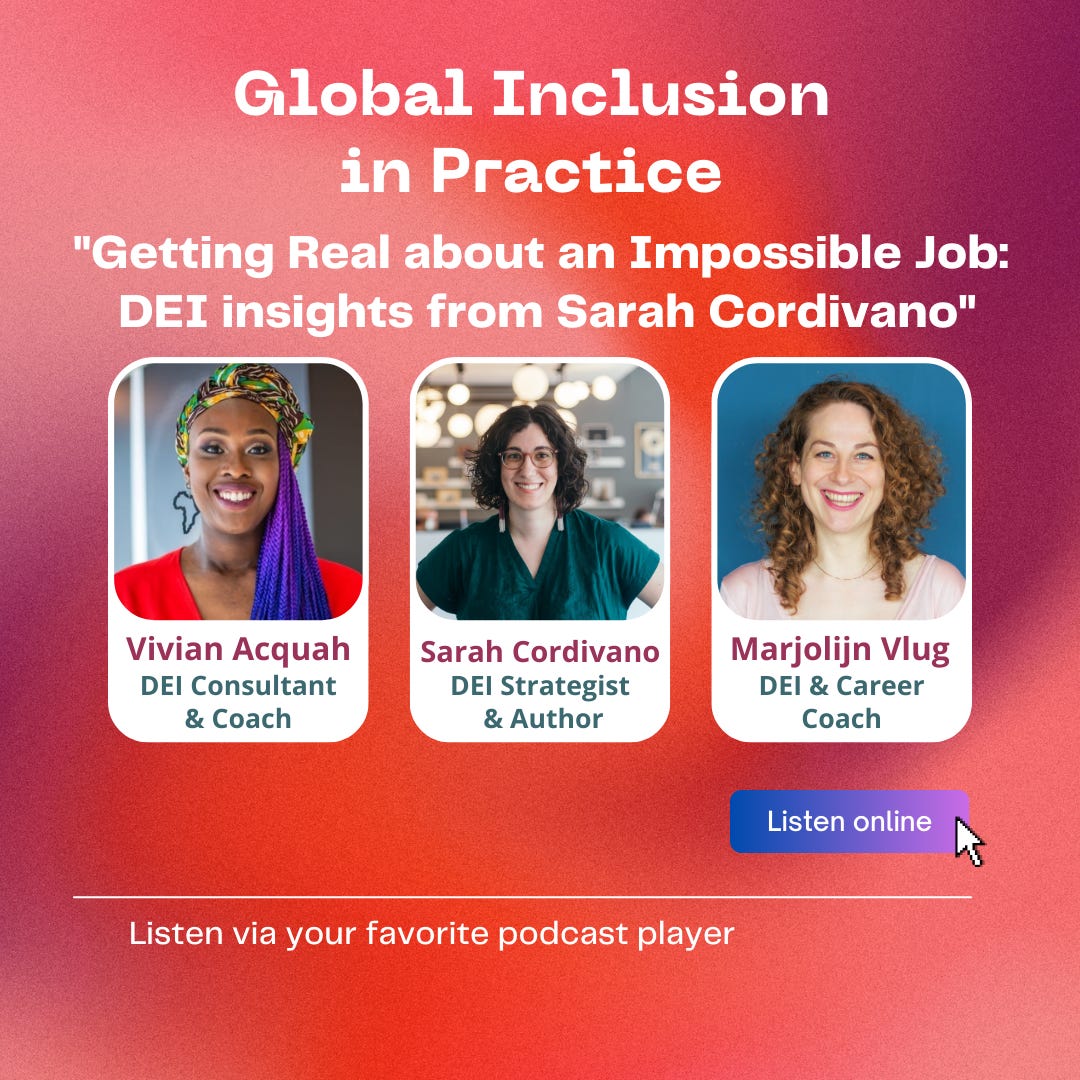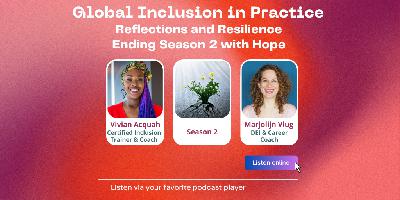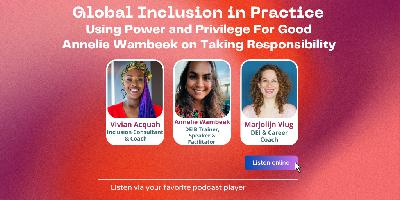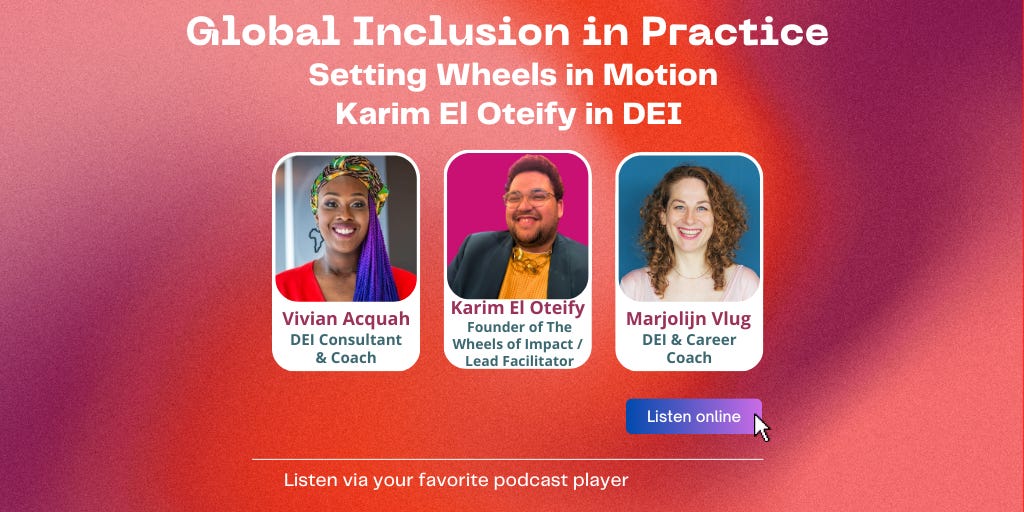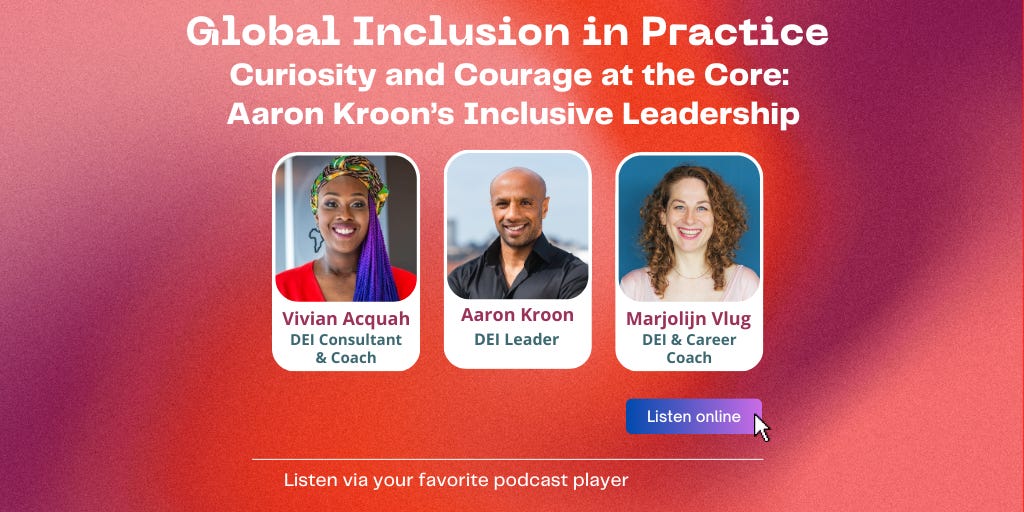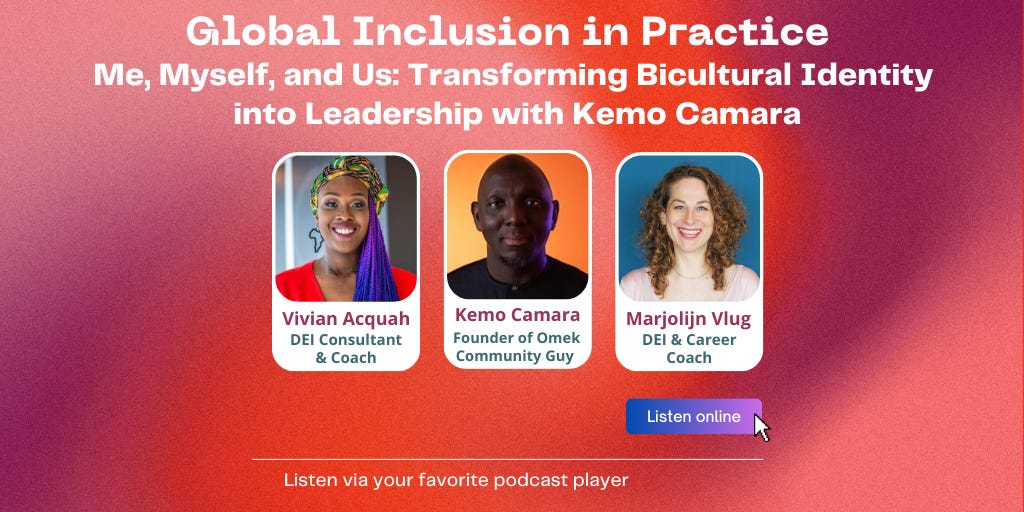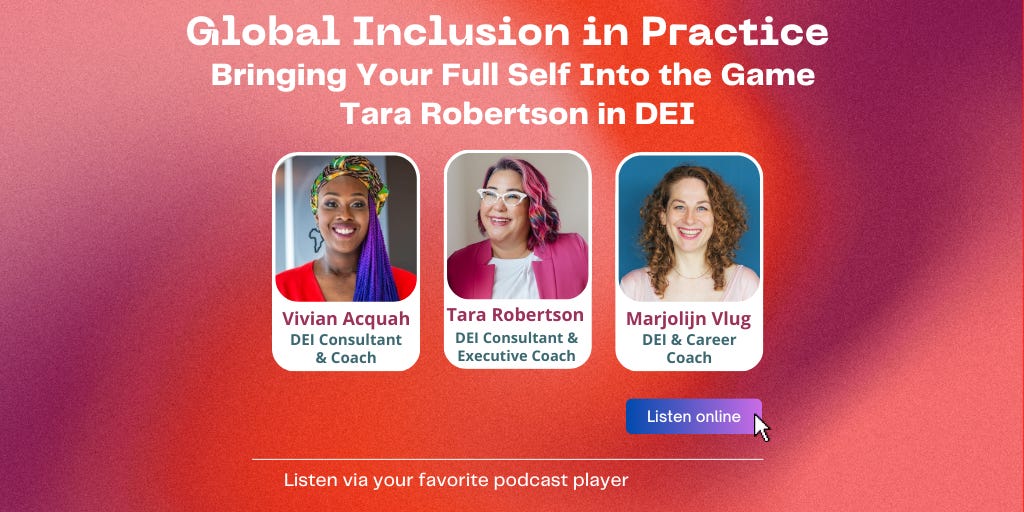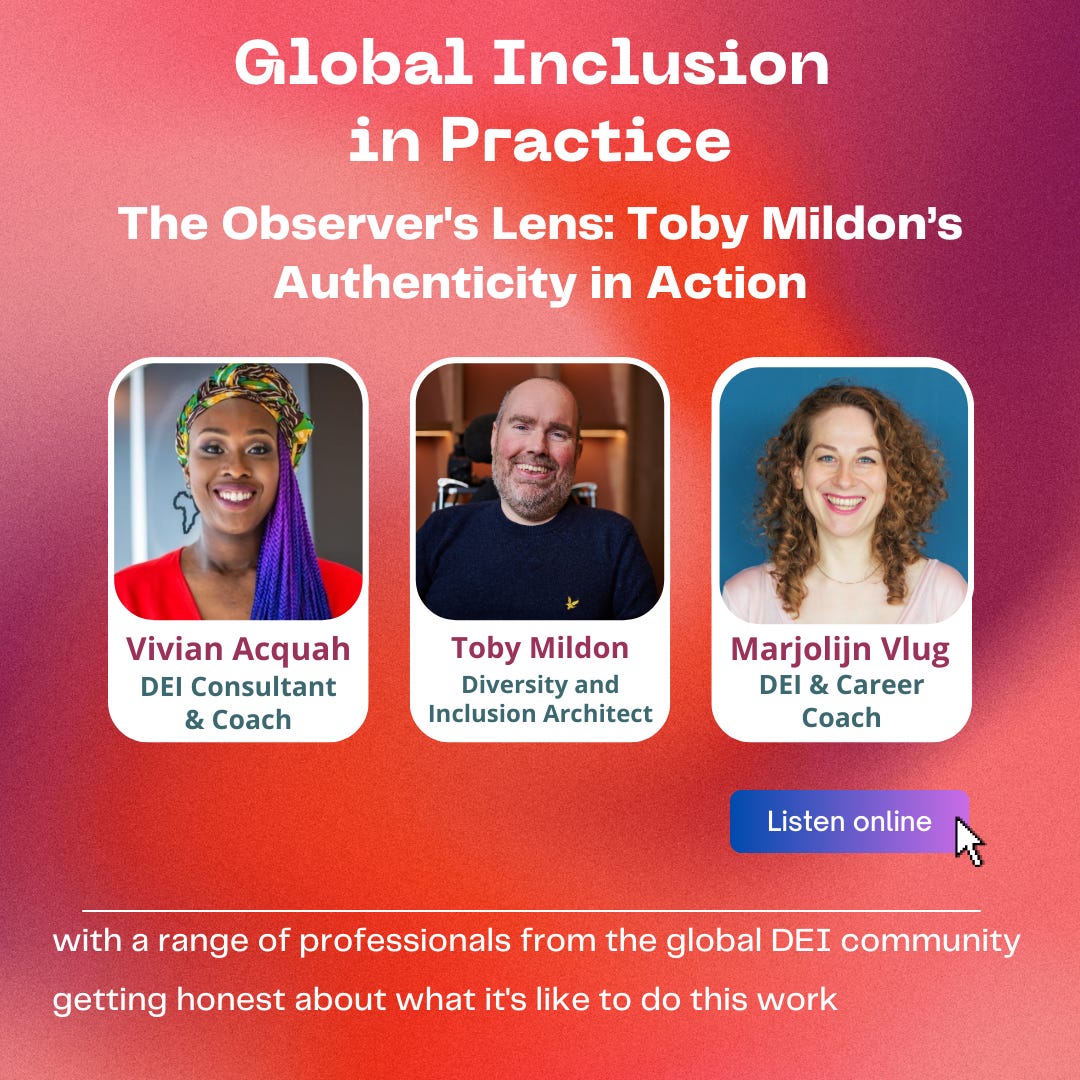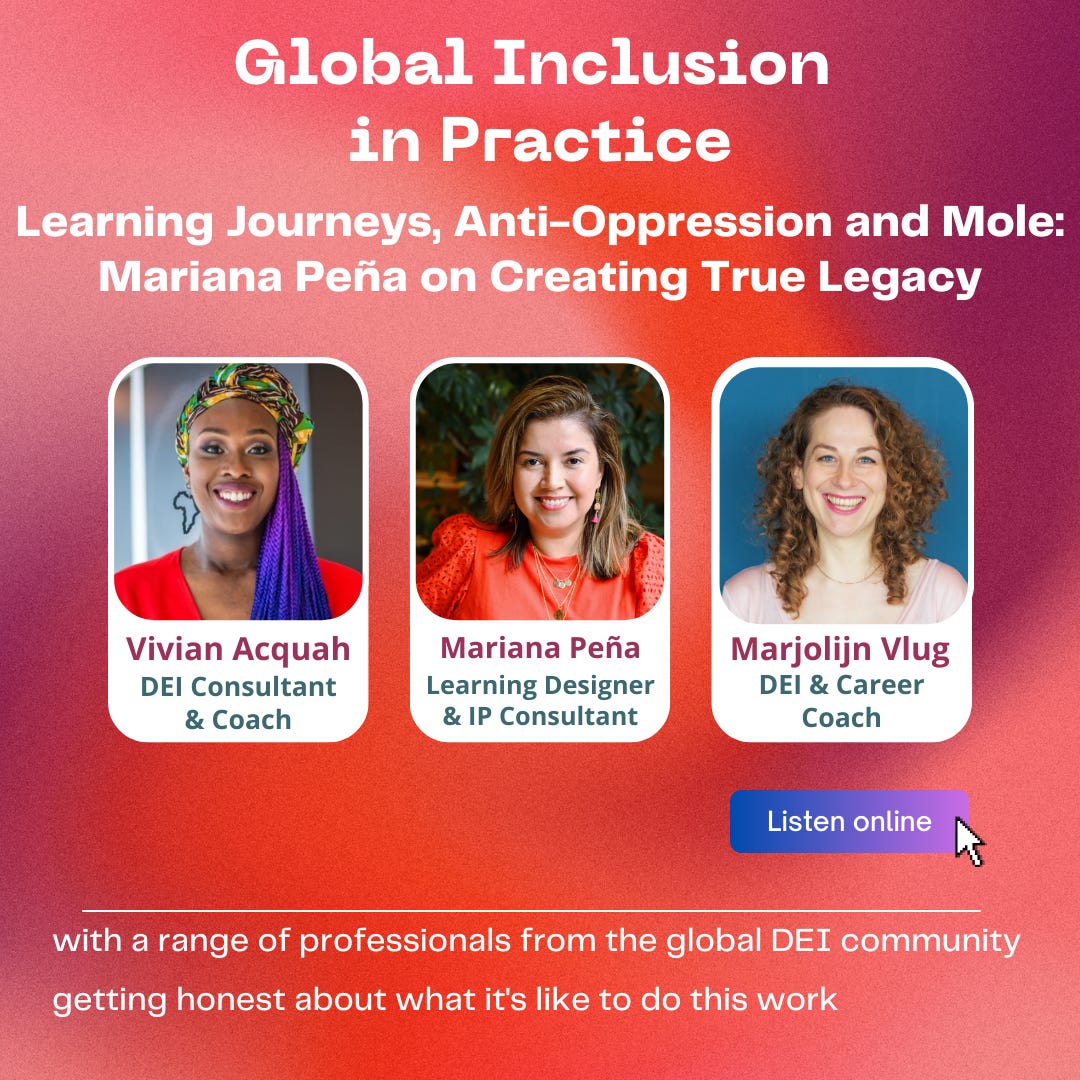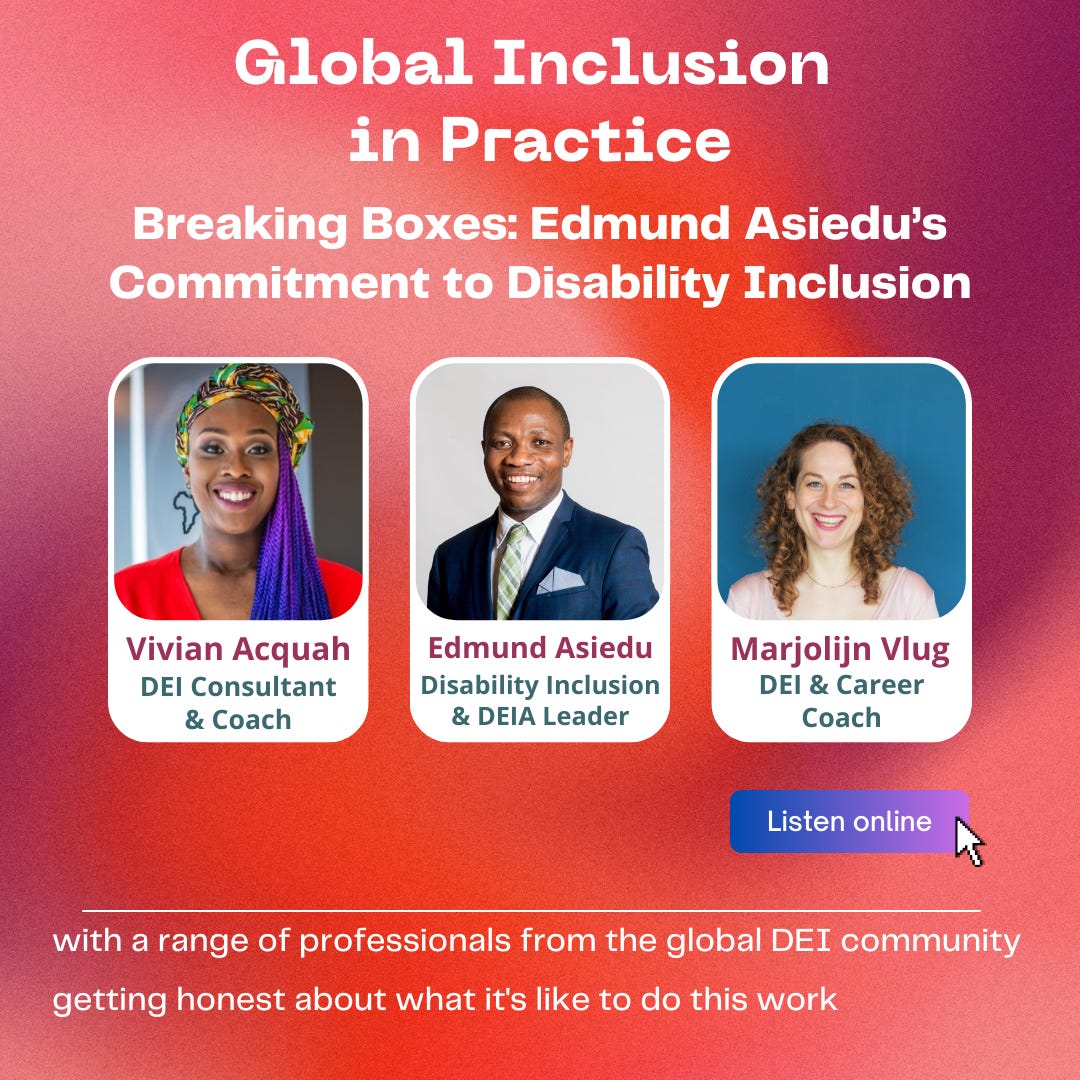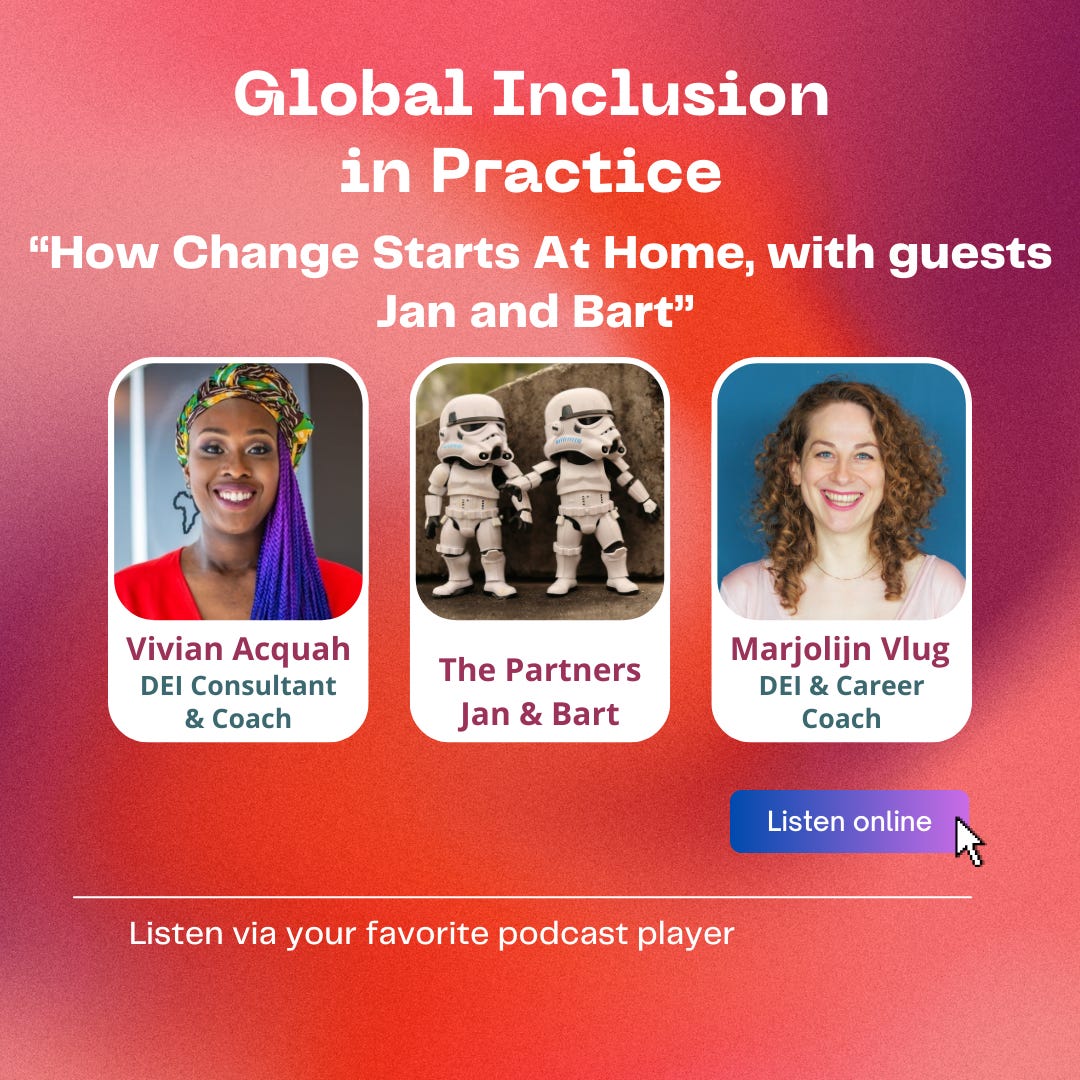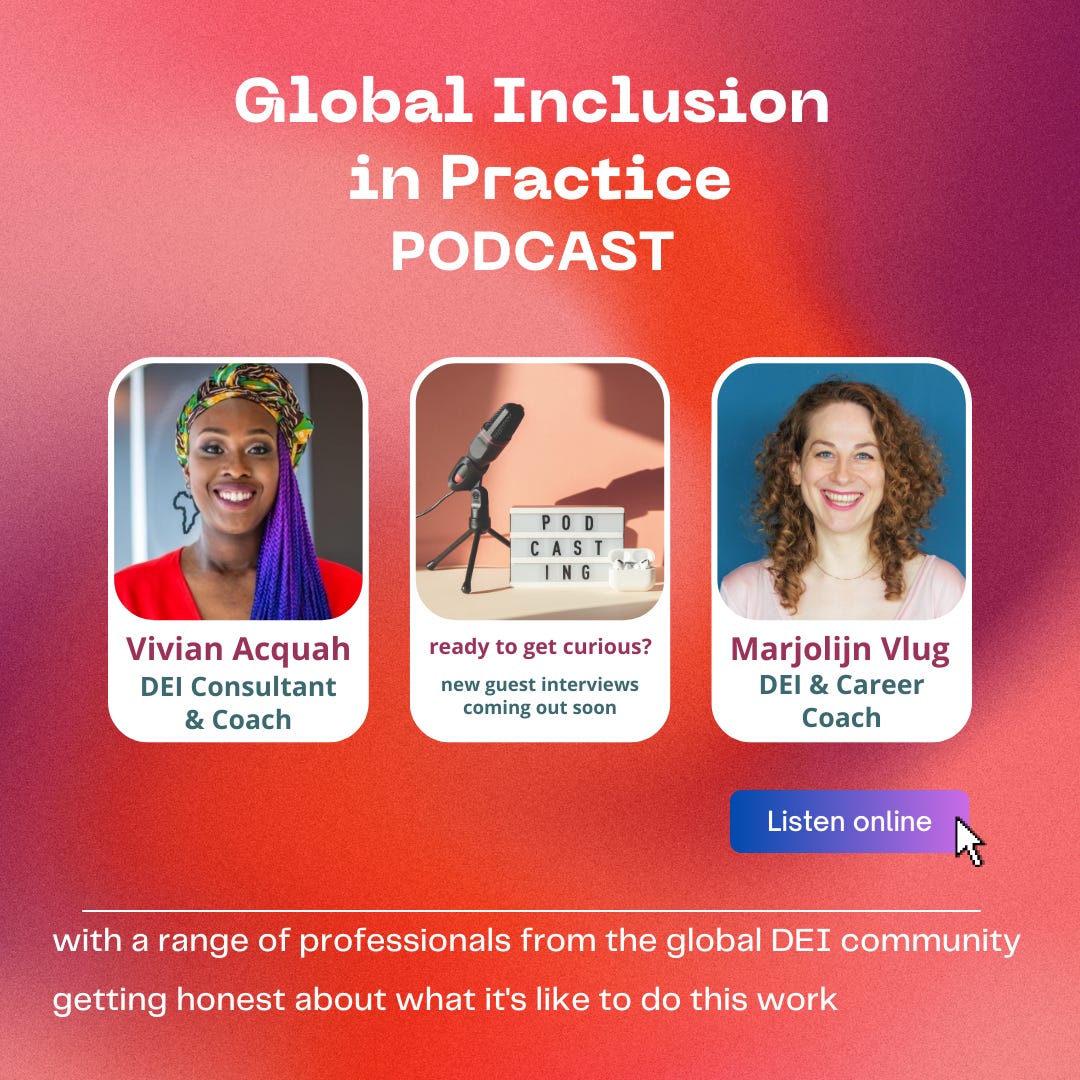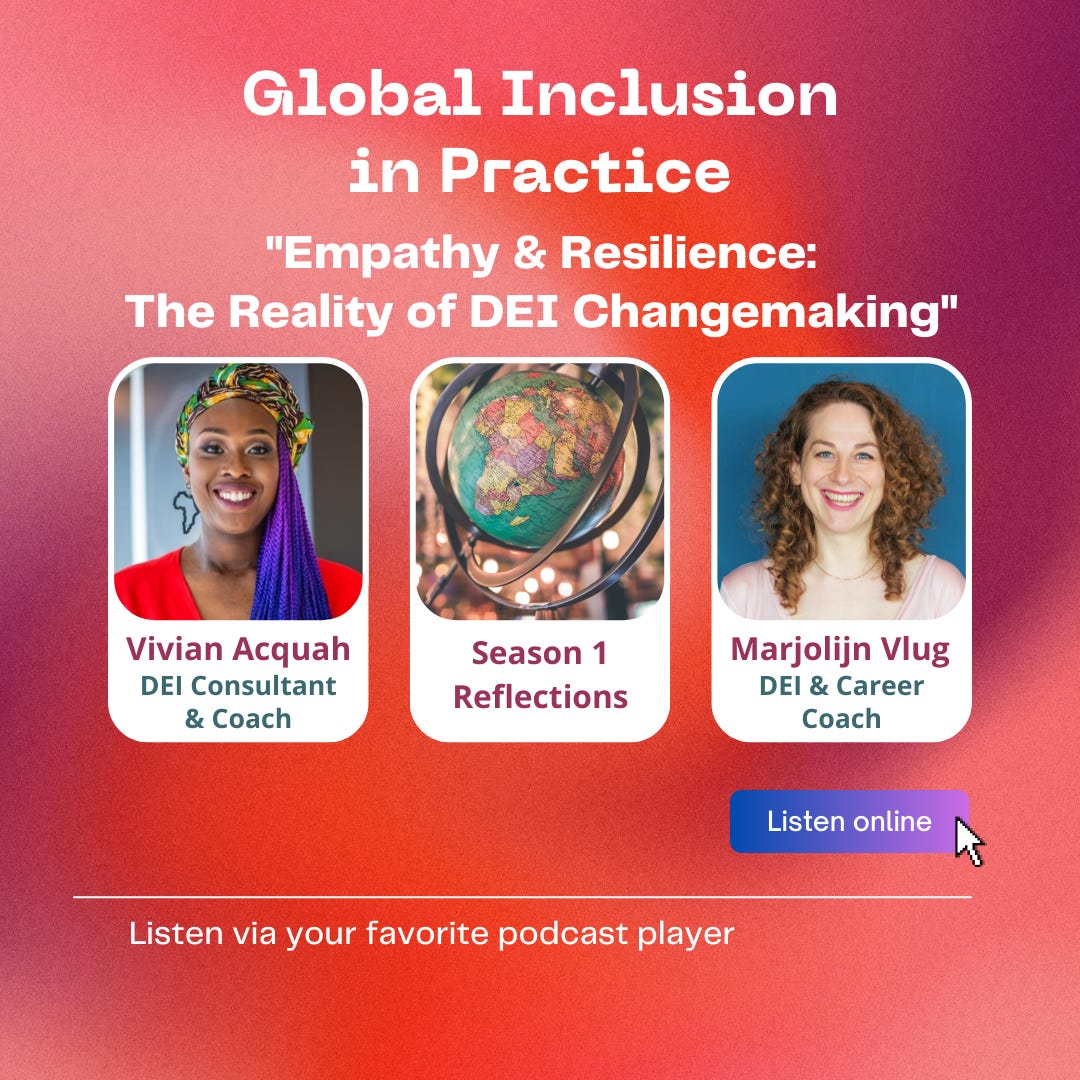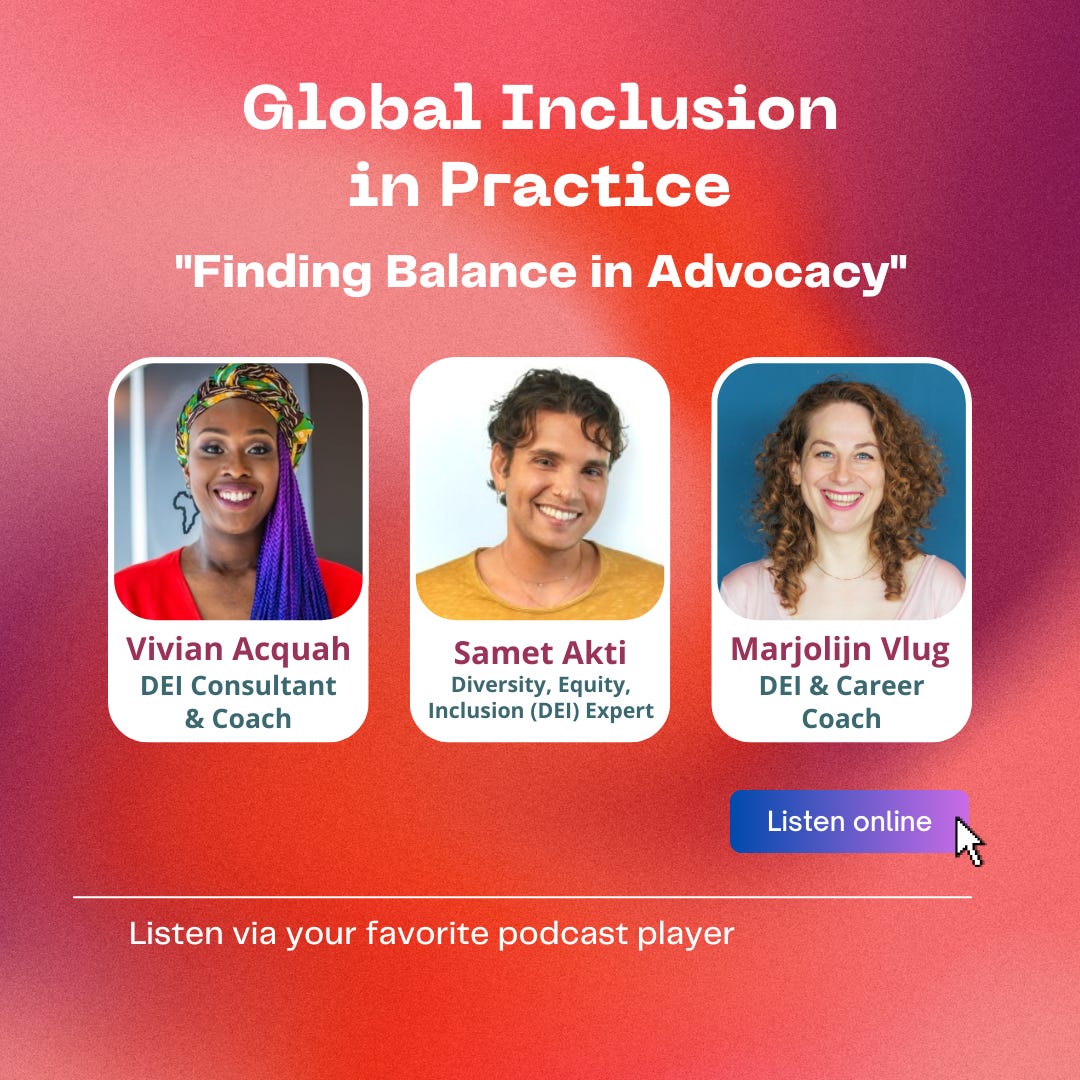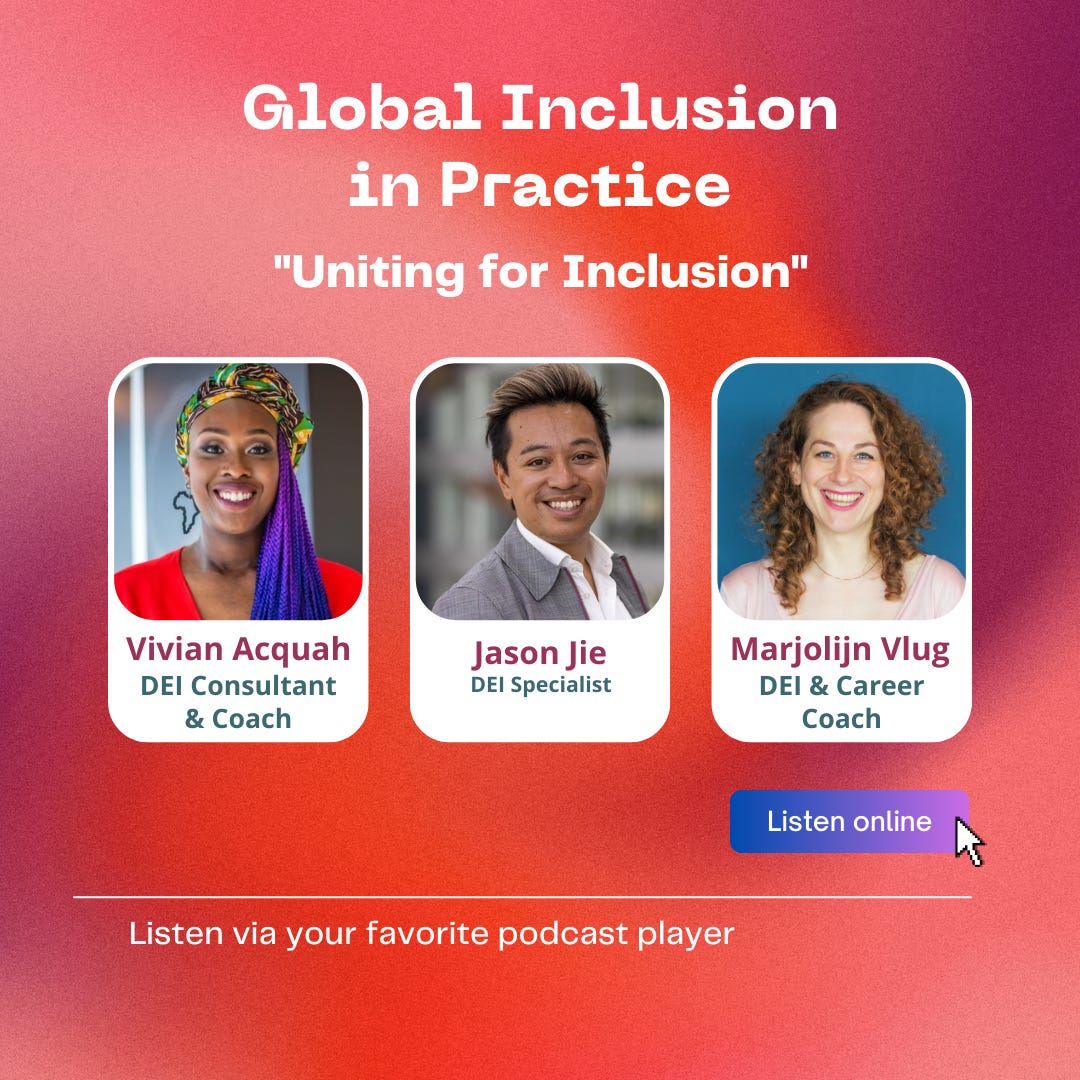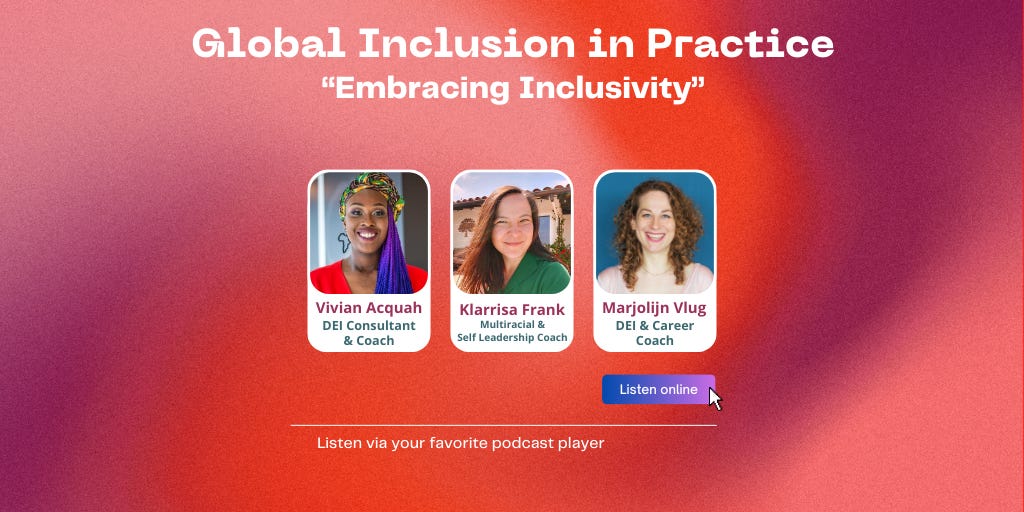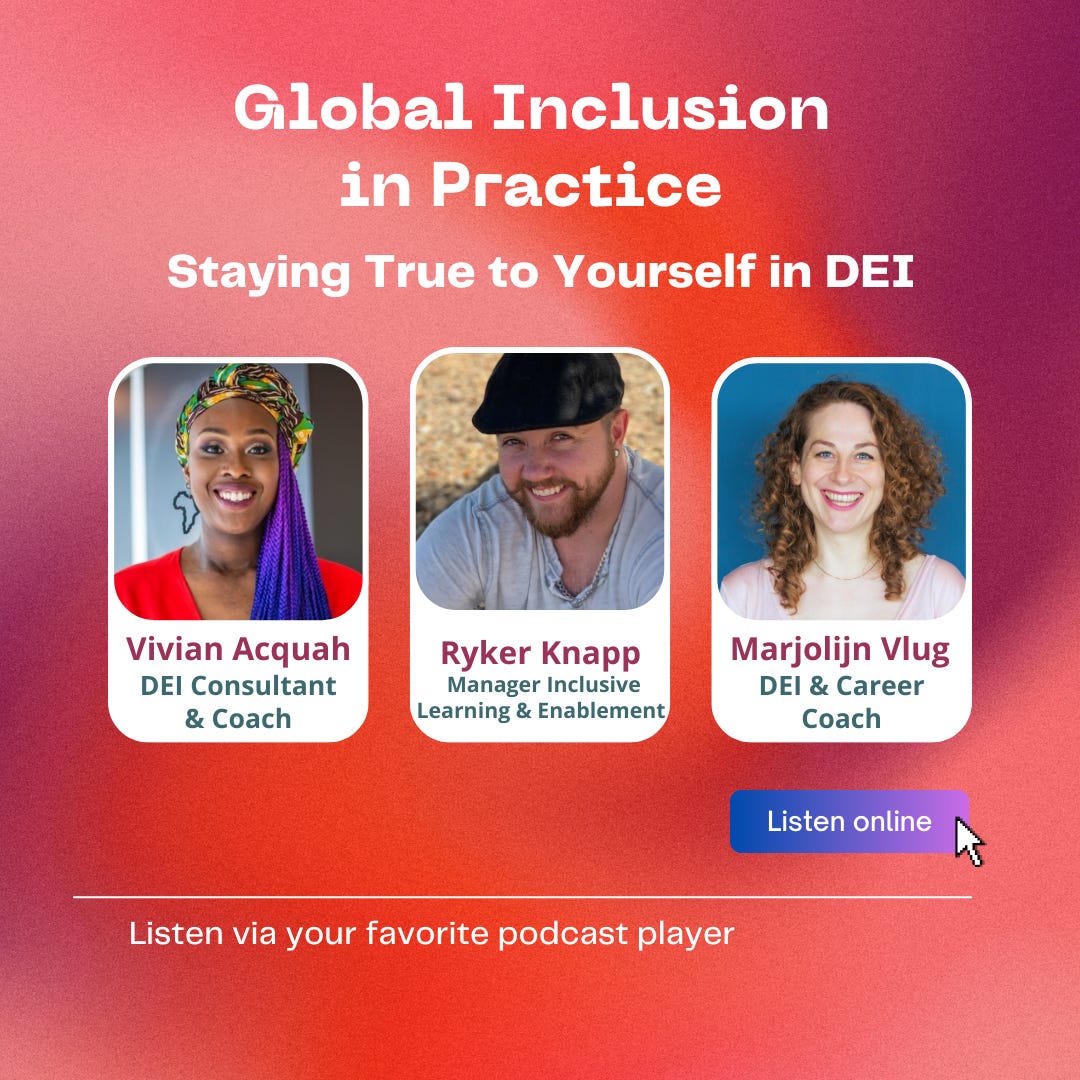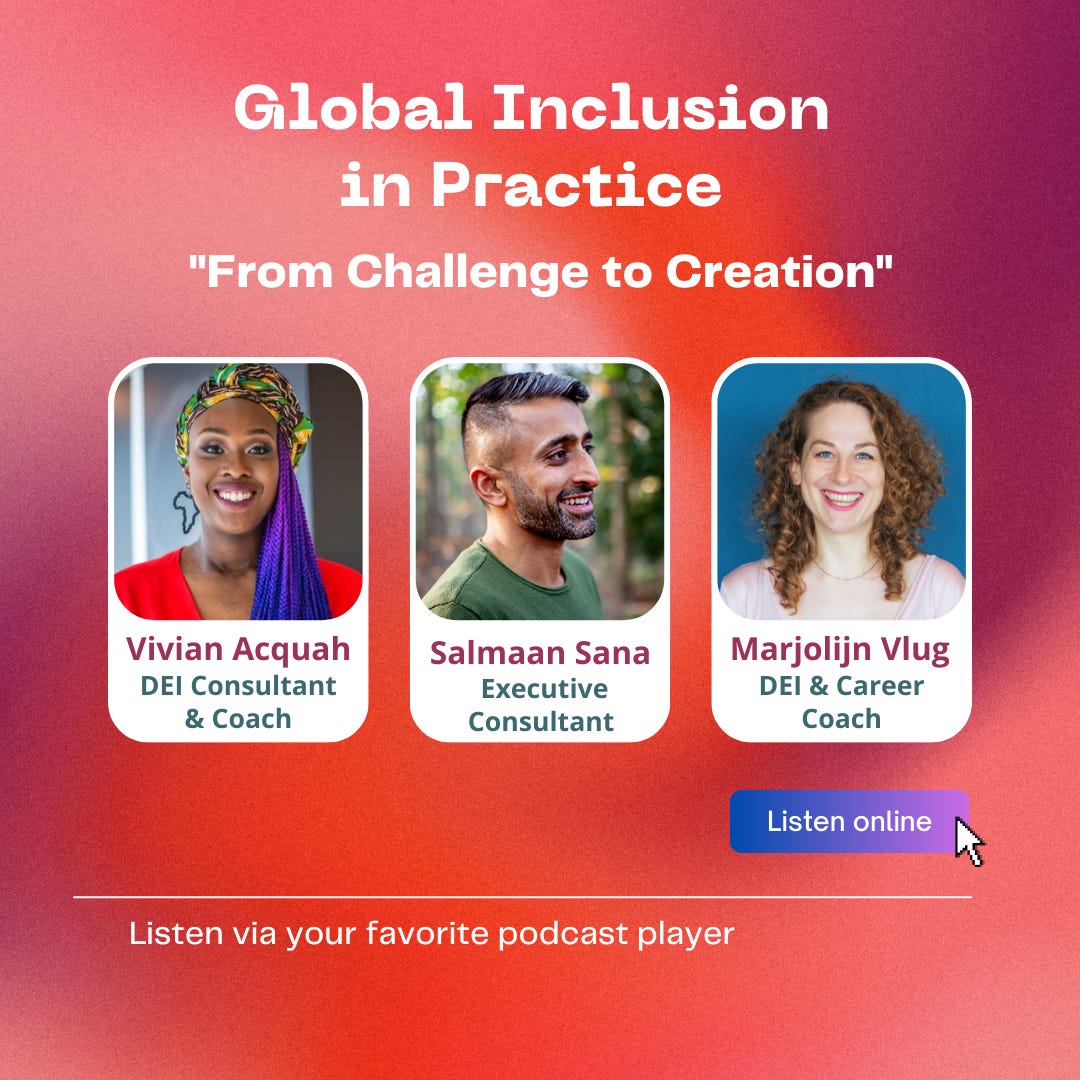Getting Real about an Impossible Job: DEI insights from Sarah Cordivano
Description
“I'm doing something for the community, giving back in a way. Having a place where people could feel heard and connect, because there's so much isolation in this work that it's hard to actually make those connections.” - Sarah Cordivano
In this episode, we sit down with Sarah Cordivano, DEI author, strategist and change maker originally from Philadelphia, who now splits her time between Berlin and Zagreb.
Sarah is a dedicated advocate in the field of diversity, equity, and inclusion (DEI) with plenty of strategic experience in tech, from big corporate to non-profit and social enterprise. She is also the author of the mic drop-titled book “Diversity, Equity, and Inclusion: How to Succeed at an Impossible Job”.
Sarah’s international perspective, spanning work experiences in both Berlin and Zagreb, allows her to experience different cultural contexts and approaches to DEI, enriching her understanding and strategies, and addressing DEI from a broader, more interconnected lens.
As an American in Europe, Sarah acknowledges the privileges and advantages she holds, and the importance of leveraging these privileges to advocate for inclusive practices. She notices the benefit of having learned strong communication skills in the US education system.
“The US education system [has] given me a chance to really practice how to communicate, how to convince people of things, how to get them on board or argue topics in different ways, which I think can be really helpful in DEI work.” - Sarah Cordivano
Sarah’s public speaking tip: practice. Just take any chance you can to speak in a group, even if it's small. Raise your hand for podcast interviews, practice giving talks with your friends about topics you're passionate about. This is how it comes, doing it over and over again and then asking for feedback and learning from that feedback.
When Sarah was younger, she never really thought about DEI as a career path, but looking back at the different steps she took in different directions, she feels like she’s been unconsciously steering towards this path: her professional background is a Venn diagram of three skills that make her a perfect fit for DEI. The first is project management, being able to bring order to chaos and deliver projects. Then there is community work, being able to build community and understanding how to motivate communities to come together to do great things. And lastly, data analytics, working with complex datasets to understand patterns of information.
“Being able to ask questions of data and move beyond anecdotes, really backing up the work that we're doing with actual numbers, I think that's a superpower.” - Sarah Cordivano
Using data to support DEI initiatives is something that has significantly shaped Sarah's approach to DEI. She sees opportunities to collect meaningful data even within strict regulatory frameworks like European GDPR rules. The ability to back up DEI efforts with concrete data is crucial, offering a way to quantify progress and highlight areas needing improvement. It's also a powerful tool to persuade stakeholders, especially leaders who are numbers-driven in their decision-making.
On the other side of the coin is something that relates back to the last-but-not-least chapter of Sarah’s book: the how to’s of self care and managing our personal relationship with the DEI work we do. Because yes, it can feel very lonely and isolating. For Sarah, writing her book became a therapeutic outlet, providing the distance and perspective she needed to process her experiences and frustrations, as well as give back to the community.
“You have certain expectations of what you want the job to be or what kind of impact you want to have, and it's really hard to actually keep going, to bring those expectations to life. And you end up constantly reframing what your goals are and what you want to do.” - Sarah Cordivano
Sarah shares common misconceptions about the DEI role, such as being viewed as a fix-it-all entity or an emblem of approval. Vivian agrees and acknowledges the importance of clarifying the role to prevent unrealistic expectations and burnout. Having these conversations is insightful, as it highlights the practical aspects of DEI work and the need for a clear understanding of what DEI professionals can and cannot do.
“[It’s] a gift to the community to hear people talk about this work honestly.” - Sarah Cordivano
As DEI professionals, we're often in the middle between strong decision makers or stakeholder groups with, for example, employees or ERGs on one side, and HR or leaders on the other. We're trying to get everyone to compromise, and we may eventually get there, but by that point it's been an exhausting journey. We put so much time and energy into it, but in the end, through all of the compromise it may not even feel like success.
Whether it's communicating with colleagues, leadership, or the broader community, effective communication helps ensure that initiatives are understood, welcomed, and implemented. Miscommunication or lack of clarity can lead to misconceptions about what DEI roles entail.
“It's very good to have the conversation in the beginning of your role to create that understanding so that you can prevent the misconception of thinking that DEI consultants or DEI leaders are supposed to be the fixers.” - Vivian Acquah
As Vivian points out, not every DEI professional is an Olivia Pope or Harry Potter who can magically fix everything. It is a nuanced role that requires clear expectations and realistic goals.
“Especially for an organization who's hiring their first ever DEI role, [it’s difficult] because you've got years of backlogs of frustration, screw ups and anxiety and everything. All of those expectations are heaped onto this one role. And it's very difficult as the first DEI role in the company to sort all that out and try to do something valuable.” - Sarah Cordivano
For Sarah, transitioning into DEI work was a period of immense growth that asked her to step outside of her comfort zone, really challenging herself to do something new. Today, she’s proud of what she’s accomplished.
“We grow a lot when we force ourselves into new spaces and new experiences. I think I've challenged myself a lot to do that.”- Sarah Cordivano
Her recent pivot to the nonprofit world has brought Sarah a different role, one where she serves as an adviser and faces different challenges but finds real satisfaction in contributing to an organization that is doing good work.In Sarah’s experience, creating distance as a way of setting boundaries is the absolute best thing we can do for ourselves.
“Getting some distance from the problems we have, either physical distance, like traveling, or actually just mental distance, like taking three days and not thinking about a challenge and then coming back to it with fresh eyes. I think you get a lot of perspective from that.” - Sarah Cordivano
Vivian adds the suggestion to journaling as a way to reflect and process emotions, underscoring the need for self-care.
“Journaling is a way to reflect, it gives you the perspective to reflect and think about, ‘Okay, what can I do and close that day off?’ Journaling is a great tool to put down your emotions and feelings so that you can move on or process whatever happened that day and move on to the next.” - Vivian Acquah
Sarah also touches on the significance of personal relationships. Simple gestures from friends can provide support and a sense of belonging. She shares a lovely story about a thoughtful gesture from friends on her birthday, making her feel loved and supported.
When asked about her biggest wish for the future, Sarah hopes that DEI initiatives continue to be relevant, resilient and integrated within organizations over the coming years. She notes the ebbs and flows, the peaks and valleys of corporate attention to DEI, calling for consistent effort and support in DEI work.
“I appreciate you taking that step back and taking that distance that you just referred to, but then seeing, hey, this is actually the pattern. This is what's going on, rather than, we're in the downslope now and it's going to go downhill forever. No, it's not. I'm sure it's not.” - Marjolijn Vlug
There is a constant effort required to maintain momentum and ensure that DEI initiatives become ingrained in the fabric of organizations. We all do our part and continue on each other’s work.
As Sarah reflects on her personal journey and on how her professional path has shaped her perspective and aspirations, she emphasizes granting herself the grace for self-discovery. She cares about rebuilding her sense of place, finding that right location for herself where she feels part of a community.
“I'm giving myself some grace this year to figure out what I want to do next, professionally, but also personally; what brings me joy.” - Sarah Cordivano
She’s been intentionally taking off some of the pressure to land a high-status next role and is enjoying having open conversations about joy and fulfillment, gathering the perspectives of various people on different kinds of goals.
One perspective she is keen on offering others in DEI is that this, too, is just a job. Looking after your own needs and boundaries remains important.
“A job is a job and you can be very, very passionate about the work you're doing, you really want to make c

